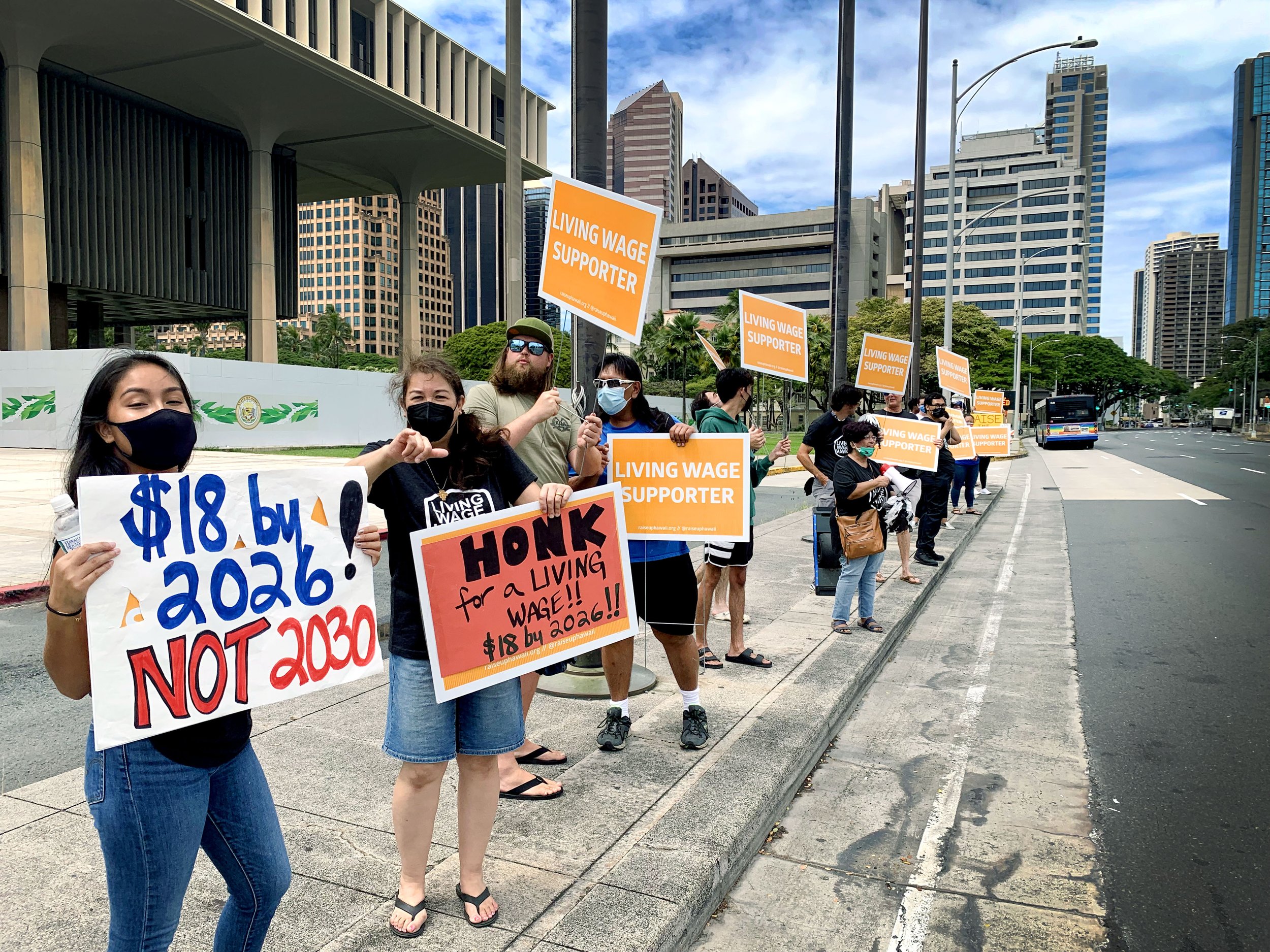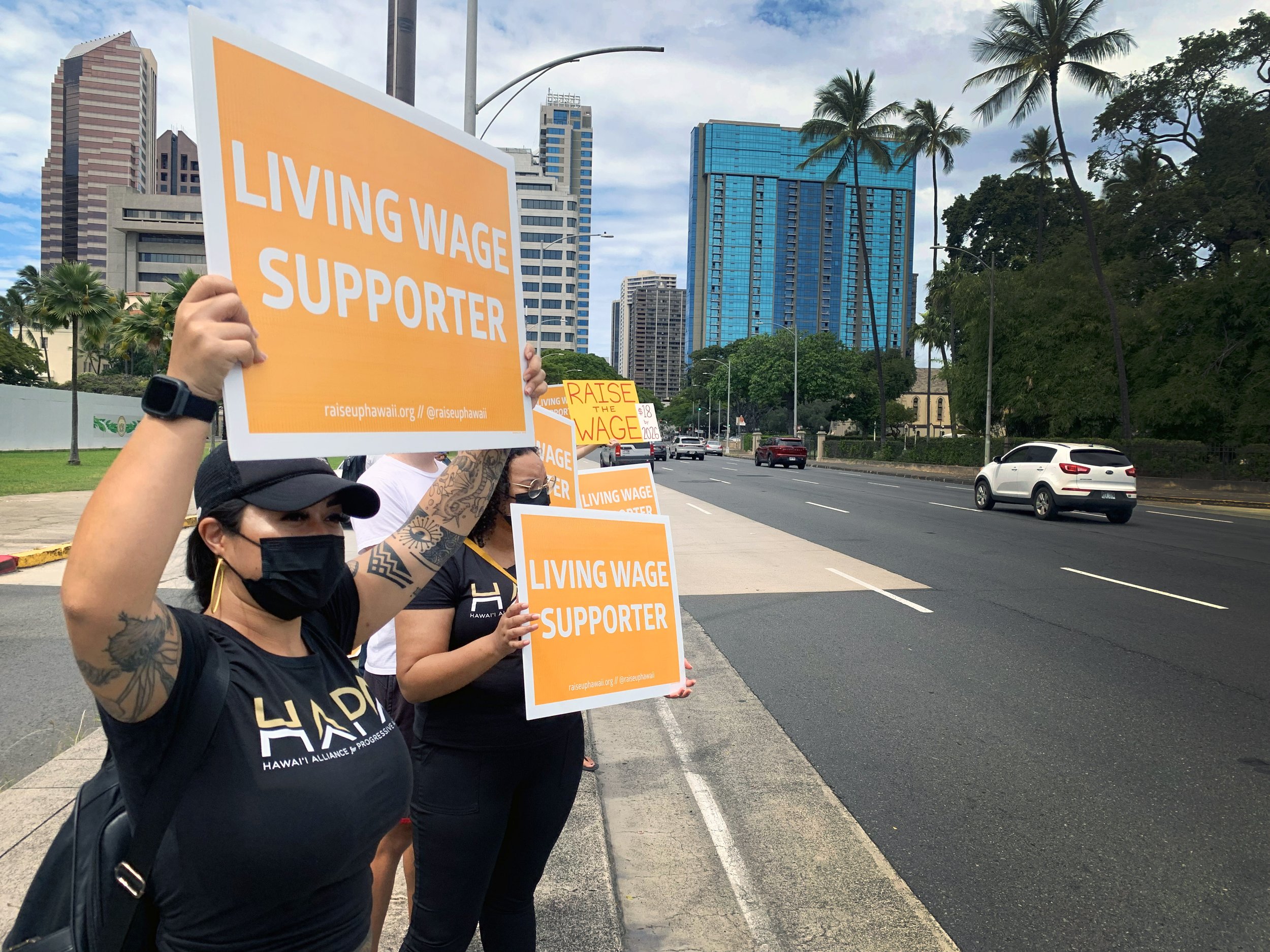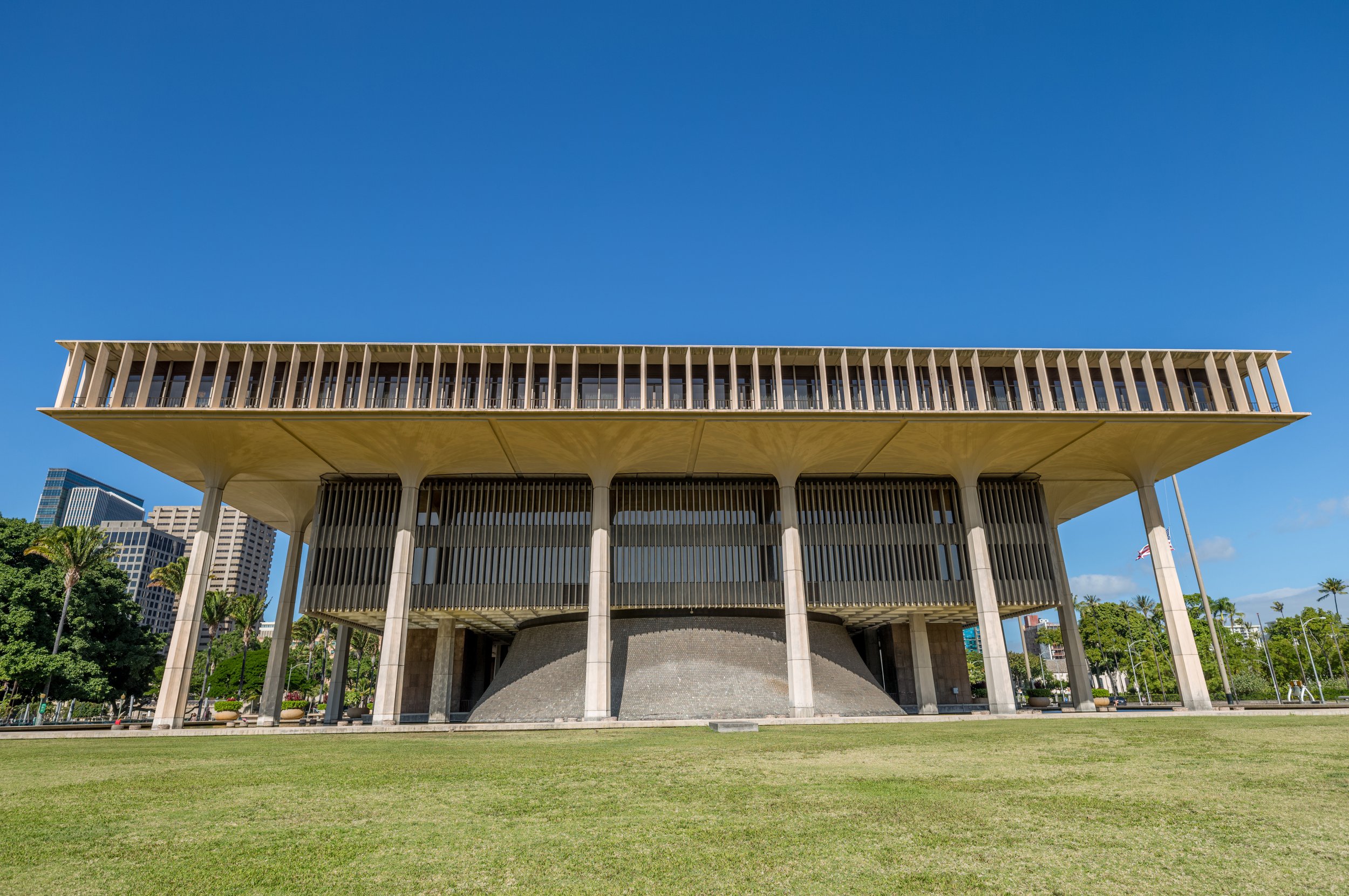
Hawaiʻi kids could lose access to free meals at school with end of federal funding
Public school students have been eligible for free breakfast and lunch during the pandemic through a program that is set to expire in June.

Senate, House clash over Hawaiʻi minimum wage bills
The vast majority of those who testified at Monday’s LCA meeting favored the 2026 date for the increase, with 113 testifying in support of the 2026 date and 11 individuals testifying in support of the 2028 date.

Hawaiʻi lawmakers tussle over one minimum wage bill
A clash of wills and philosophies among state lawmakers over how to raise Hawaiʻi’s minimum wage now appears centered on one bill at the legislature instead of two.

Fighting for a living wage in Hawaiʻi
Workers in Hawaiʻi are rallying at their State Capitol to raise the state’s minimum wage for the first time since 2018. The "What A Day" podcast discusses how workers are being affected by low wages in the highest cost-of-living state in the nation.

Wage measures still alive
A bill in the state House of Representatives that would increase the minimum wage cleared a committee hurdle Tuesday.

Hawaiʻi minimum wage bill advances despite criticisms
Worker advocates called for a faster increase to $18 an hour consistent with a bill passed in January by the full Senate in a 24–1 vote.

State tax bill could have major impact on Kauaʻi
A bill in the state legislature could potentially mean more money in the pockets of working families on Kauaʻi.

An $18 minimum wage won’t raise prices dramatically
But a living wage increase will go a long way toward providing financial stability for many in Hawaiʻi.

Legislators consider extending income tax credit for struggling families
Every dollar a tax filer gets from the EITC generates another $1.24 in economic activity. This type of tax refund can act as an economic stimulus for the state.

Hawaiʻi legislature 2022: smart spending could help big problems
The legislature has money available for almost any policy initiative imaginable, and every member of the house and senate is up for reelection.

Hawaiʻi schools are buying less local food during the pandemic
Despite new legislation requiring public schools to serve student meals with more local ingredients, advocates say they are frustrated by a regression in local food initiatives.

Pandemic fuels spike in childhood obesity in Hawaiʻi
Nearly one in six children between the ages of 10 and 17 are obese in Hawaiʻi, marking a significant increase from four years ago and fueling concerns about the impact that COVID-19 restrictions and school closures have had on the health of the state’s youth.

How the ‘Build Back Better’ plan saves money and lives
The answer lies in an expansion of the strategy that held the line against poverty in 2020 and that helped America out of the Great Depression.

Fundraising campaign kicks off next week to help fight child hunger
An annual fundraising campaign kicks off next week to help fight child hunger and expand participation in free breakfast programs at public schools.

Why are more people than ever receiving food stamps in Hawaiʻi?
A historically high enrollment in the food stamp program is part of a broader increase in the need for public services during the pandemic.

The pandemic has transformed how aid groups help elderly in need
Federal COVID-19 relief funds helped local groups coordinate outreach to better serve kupuna who were often isolated during the pandemic.

Lawmakers should pass tax bills to fix our upside-down tax system
Minimum wage earners should not be paying a higher percentage in taxes than those at the top.

Economic recovery should focus on working families
And Hawaiʻi’s lawmakers should pass legislation that supports workers’ well-being.

Hawaiʻi sees ‘startling’ increase in number of children facing hunger
Even as benefits programs expand and school meal programs shift, food insecurity is expected to continue to grow in the islands.

Hawaiʻi Appleseed Center stresses importance of city’s rent relief program
After just four hours, the city's new rent relief program was suspended because so many people applied. The $114 million in federal money is for back and future rent and utilities.
